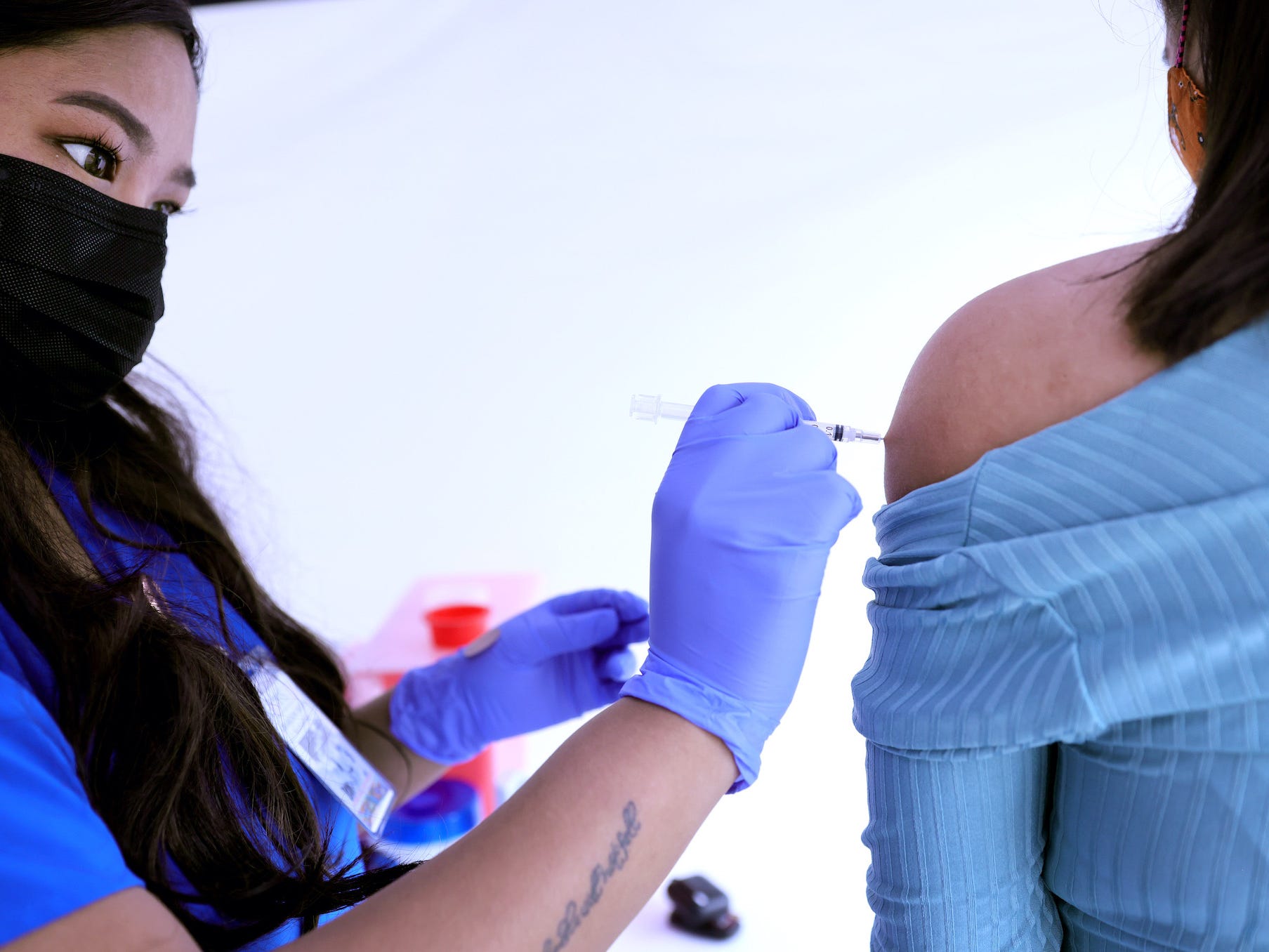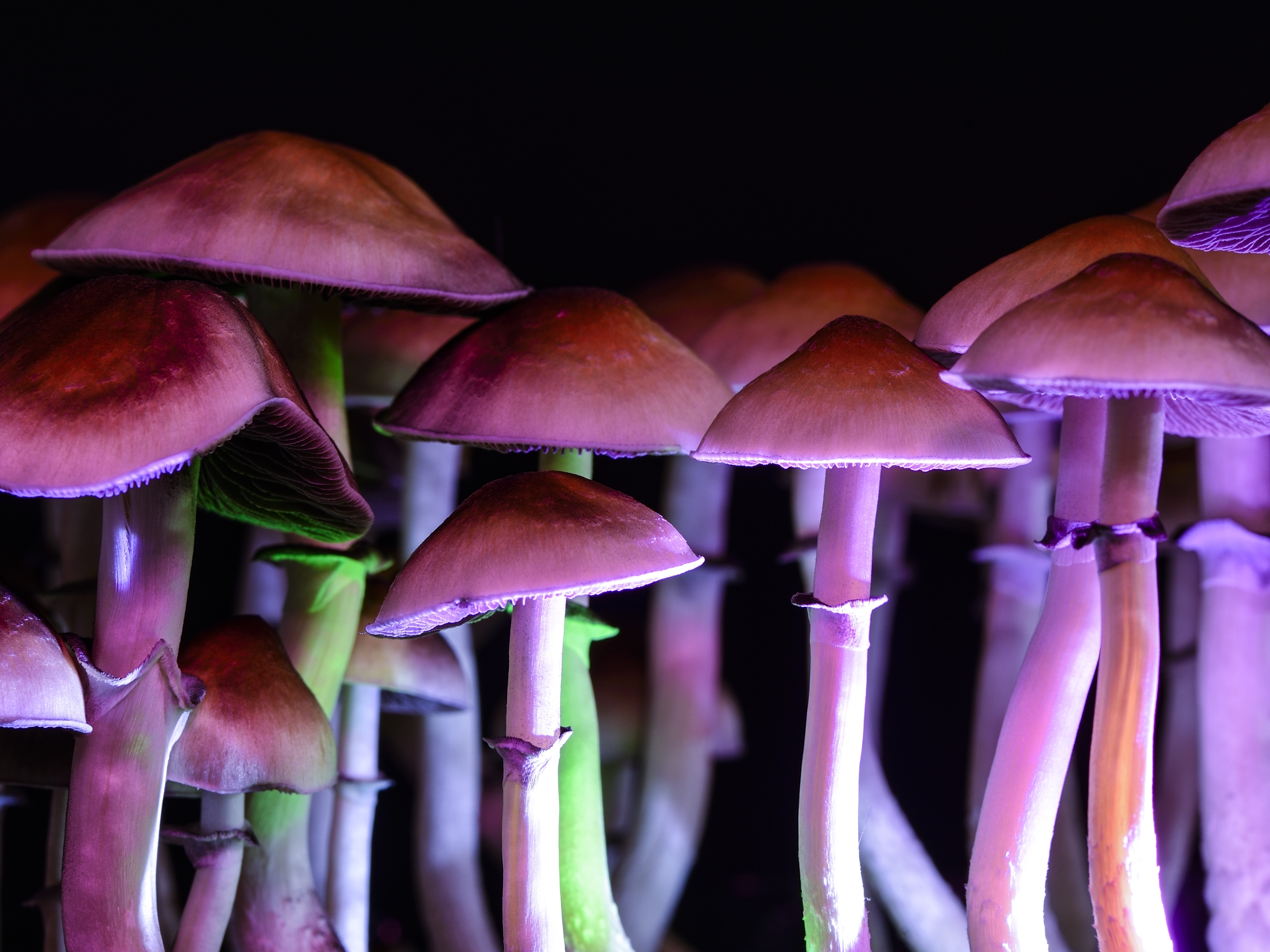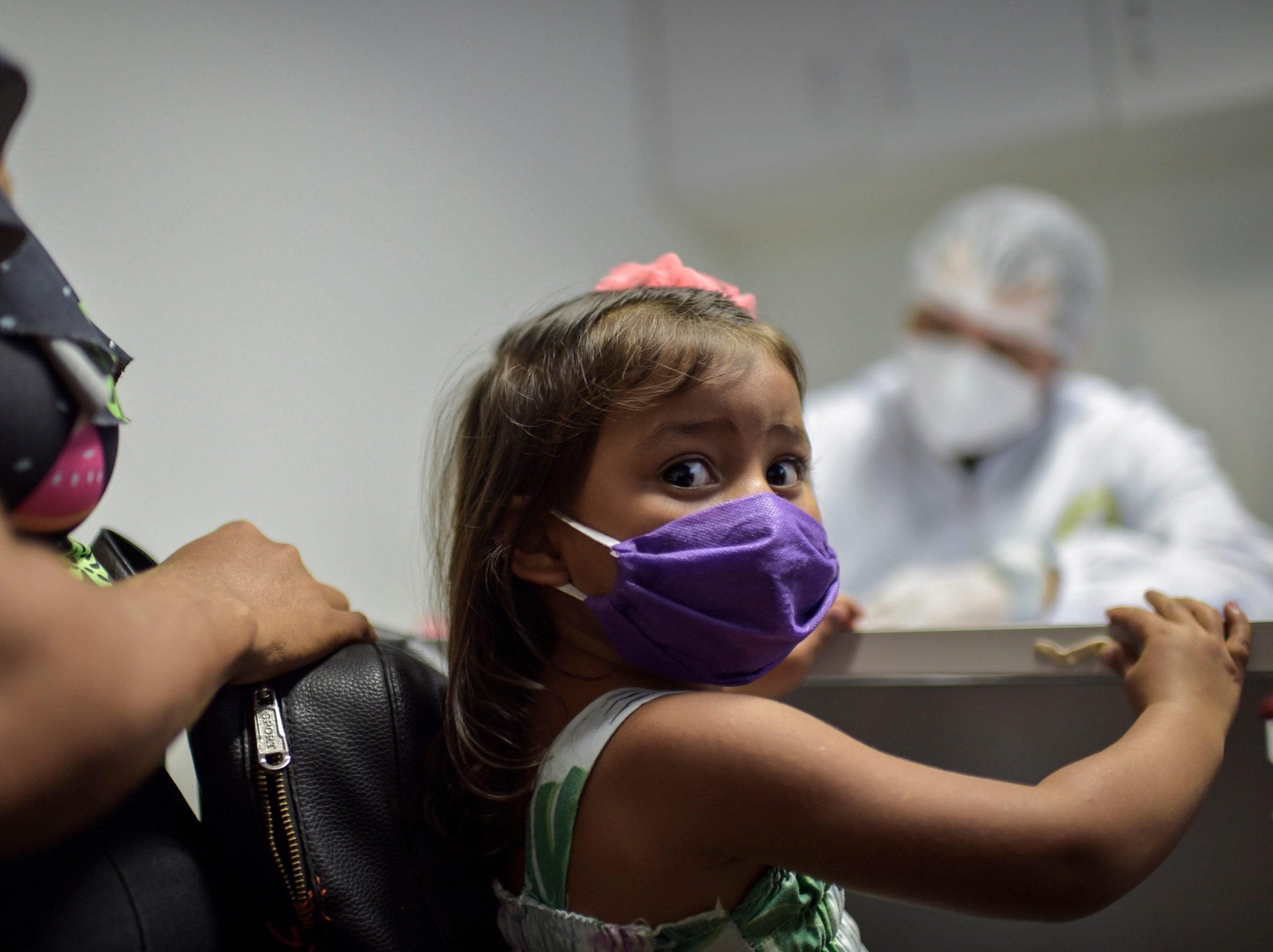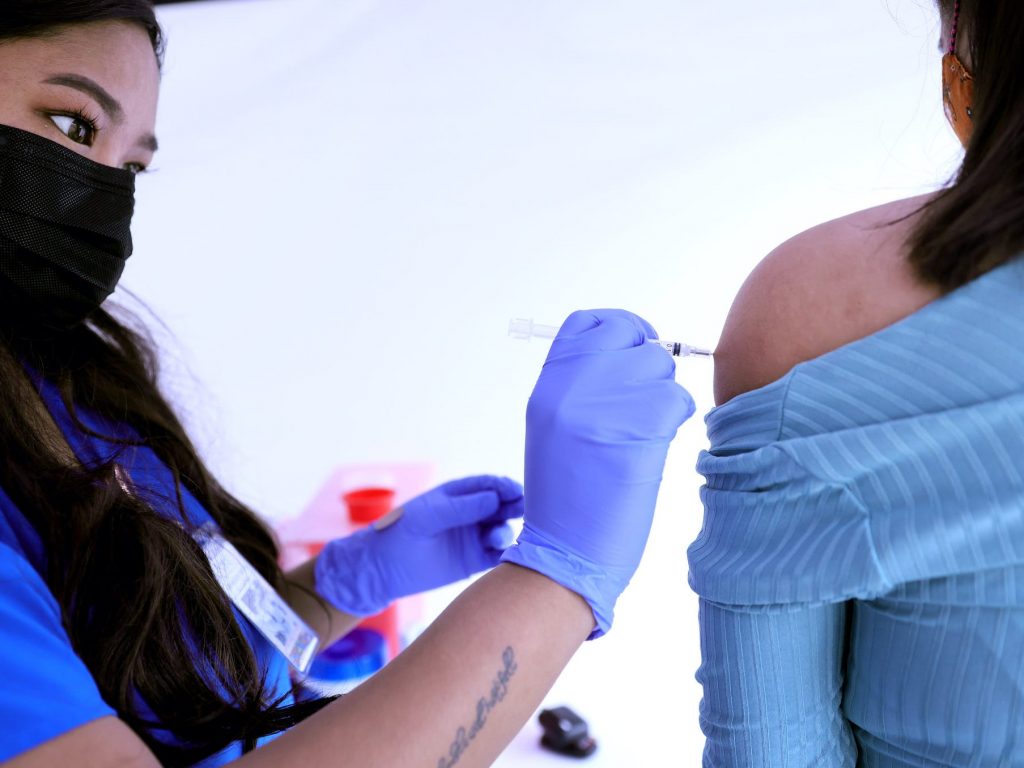Hello,
Welcome to Insider Healthcare. I'm Lydia Ramsey Pflanzer, and today in healthcare news:
- There are still some big, unanswered questions about COVID-19 vaccines;
- A fight is brewing that could shape the future of the $100 billion psychedelics market;
- Coronavirus variants have new names.
If you're new to this newsletter, sign up here. Comments, tips? Email me at [email protected] or tweet @lydiaramsey125. Let's get to it…
First, I wanted to let you know that we're now accepting nominations for our annual list of 30 leaders under 40 transforming healthcare.
This will be our fifth (!) list, and I'm excited to see how it shapes up (here's last year's in case you missed it). We're looking for nominees from all parts of healthcare – from up-and-comers within large companies, to entrepreneurs, to scientists and clinicians.
Think you know someone who'd be great? Submit their name here by June 30.

A medical assistant administers a COVID-19 vaccine dose to a woman at a clinic in Los Angeles on March 25, 2021.
Mario Tama/Getty Images
3 lingering questions about COVID-19 vaccines will shape the pandemic's trajectory into 2022 and beyond

Mario Tama/Getty Images
- Coronavirus vaccines have been a stunning success story of the pandemic.
- But there are still a few unanswered questions about the COVID-19 vaccines we have.
- Some of the biggest: How long does vaccine protection last, and how good will it be against new variants?

Psilocybin mushrooms
Anitram/Shutterstock

Anitram/Shutterstock
A fight over patents in the psychedelics industry is just getting started, and it stands to shape the future of a $100 billion market
- As psychedelics enter the mainstream, longtime proponents of the compounds are growing concerned.
- Some say overreaching patents could block access to psychedelic medications.
- The conflict over patents has the potential to shape the future of the psychedelics landscape.
Find out more about what's at stake>>

A child wearing a face mask looks on on board the UBSF hospital boat amidst the coronavirus pandemic in Ilha de Marajo, Brazil
Pedro Vilela/Getty Images
Coronavirus variants now have simple, easy-to-remember WHO names, which helps avoid the 'stigma' of referring to them by a specific country

Pedro Vilela/Getty Images
- Coronavirus variants now have simple, easy-to-remember names.
- All variants with worrying mutations will be given a single letter from the Greek alphabet, the WHO said.
- This is to avoid the "stigma" of people referring to them by the country they were discovered in, the WHO said.
More stories we're reading:
- People are hesitant to get the free COVID-19 vaccine because they're worried about unexpected bills (The New York Times)
- Shaking hands has become the norm again for startup founders and VCs, but some say they dislike touching a stranger's hand (Insider)
- Researchers say they've mapped out the entire human genome, even parts that had been missing until now (Stat News)
- Scientists say they've made the first 'human' breast milk in a lab, and it'll be available in about 3 years (Insider)
- Lydia
